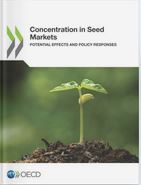 Topics Topics |
|
|
|
 Species Species |
|
|
|
|
|
ABARES survey reveals vegetable farm profits increase, number of farms decreases
Australia
November 21, 2017
The average Australian vegetable farm is making more money and earning higher prices for its produce, but cash costs are continuing to rise across the board, with the vegetable industry’s peak body warning many smaller growers are struggling to stay competitive in an increasingly consolidated industry.
As found by a recent survey conducted by the Australian Bureau of Agricultural and Resource Economics and Sciences (ABARES), the average farm cash income of Australian vegetable growing operations is estimated to have increased to around $254,100 as a result of increased vegetable production and higher prices.
The ABARES report, which was a strategic levy investment using the Hort Innovation Vegetable Fund, indicated that the value of the Australian vegetable industry increased to around $3.6 billion in 2015-16, accounting for around six per cent of the gross value of agricultural production. The survey also indicated that in the same time total cash costs continued to rise, with average cash costs rising by 29 per cent to an average of over $1 million per farm due to rises in all cost categories captured in the report.
According to AUSVEG, the vegetable industry’s peak industry body, the rise in the industry’s value and the overall increases in average farm incomes are positive signs for the future profitability of the industry, but the steep increase in costs poses a significant risk to many businesses, particularly smaller-sized farms.
“The rising value of the industry and the increasing trend for Australian vegetable exports shows that our industry has a bright future as a supplier of high quality fresh vegetables to consumers in Australia and around the world,” said AUSVEG CEO James Whiteside.
“Large-scale farms have been mostly responsible for the increase in average farm income, as they can benefit from increased efficiencies and economies of scale. This has resulted in increased re-investment into these businesses, including in technological and operational improvements so that they can continue to innovate and develop their businesses to supply vegetables for local and international consumers.”
“The increased production and demand for a wide variety of vegetables, particularly Asian vegetable varieties that were considered niche products not too long ago, shows growers are responding to Australians’ increasing appetite for a larger variety of fresh and value-added vegetables, which can demand a higher value at a retail level.”
The number vegetable growing farms has fallen 37 per cent from 2006-07 to 2015-16, driven by primarily by declines to smaller growers, and the proportion of vegetable growers who recorded a negative farm business profit remained at a similar level to the 10 year average, with nearly 60 per cent of vegetable growers recording a negative farm business profit in 2015-16.
“The costs of doing business, particularly for hired labour, seed, freight and fertiliser, have increased significantly over the last 12 months, so while larger businesses are able to increase production and cover these increases, smaller growers often struggle to be competitive, which is driving increased consolidation,” said Mr Whiteside.
More news from:
. AUSVEG (Australian Vegetable Growers Federation)
. ABARES (Australian Bureau of Agricultural and Resource Economics and Sciences)
Website: http://www.ausveg.com.au Published: November 21, 2017 |
|
|
|
Better Food Venture's
AgTech Landscape 2019

|
| |
|
2019 THRIVE Top 50
landscape map

|
| |
|
Concentration in Seed Markets - Potential Effects and Policy Responses

(OECD December 2018)
|
|
Visualizing Consolidation
in the Global Seed Industry
1996–2018

Seed Industry Structure
1996-2018
Phil Howard
Associate Professor
Michigan State University
|
|
2017 Seed Company Family Tree
Ccreated Septebmer 2017
by Robert Walsh
WaSoo Farm, Elk Point, South Dakota |
 |
Syngenta Brands Family Tree
Ccreated January 2017 by Robert Walsh, WaSoo Farm, Elk Point, South Dakota
|
 |
| |
Rabobank's
World Vegetable Map 2018 |
 |
|
|